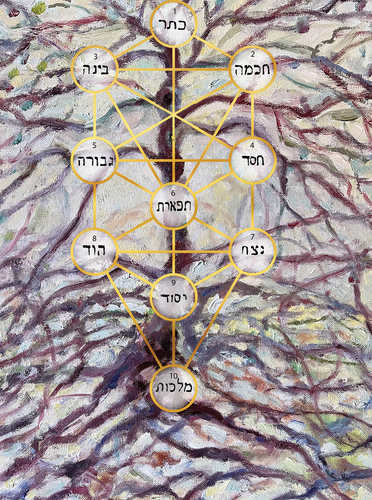Kabbalah, a mystical branch of Judaism, has experienced a recent surge in interest. Many celebrities include Madonna, Ashton Kutcher, Natalie Portman, and Demi Moore among them as adept practitioners.
But what exactly is Kabbalah? Is it magic, astrology, or something else altogether? Let’s find out.
Spirituality
Spiritual transformation is the process of abandoning old patterns and beliefs while adopting new ones, often prompted by significant life events or the desire to expand personally. Spirituality may include religion or faith-related practices like mindfulness meditation yoga or journal writing; however, it can also include nonreligious activities like mindfulness practiced through mindfulness practiced meditation yoga or journal writing.
Kabbalah’s spirituality centers around Hebrew’s power to invoke God. Practitioners utilize magical formulas to transform themselves and the world around them; midrashic and Talmudic literature is full of these incantations; however post-Talmudic rabbinical literature often seeks to limit or even abolish them altogether. Some kabbalists still engage in what’s known as Kabbalah Maasit (“practical Kabbalah”) – using specific names or formulas with supernatural or theurgic effects.
Practical Kabbalah was inspired by a desire among many AIDS patients for meaning and purpose in their lives. For instance, one survivor saw genocide and loss as an opportunity to reconnect spiritually with God; similar stories are shared by most women living with HIV in sub-Saharan Africa who find comfort through religious belief.
Self-love
Love of oneself can be an extremely transformative practice that can profoundly change lives in multiple ways. Loving yourself means treating yourself with kindness, compassion, and respect while taking care of your physical, emotional, and mental well-being. Self-love can boost productivity, enhance relationships, increase fulfillment levels and foster an optimistic outlook on life – among many other benefits!
Practice self-love is simple and can be accomplished through adding positive affirmations into your daily routine. Doing this in the morning or at moments of reflection throughout the day will help reshape your internal dialogue and promote a healthier self-image. Surround yourself with body positive media and supportive social circles and also learn to love yourself by setting and maintaining healthy boundaries.
Once you gain an awareness of your own worth, you will begin prioritizing your needs and less likely to commit yourself to events or activities which leave you feeling exhausted or unfulfilled. Furthermore, self-love prompts forgiveness of others who have wronged us; although this may appear selfish at first glance, forgiveness of others is key in finding happiness.
A support system
Support systems are integral parts of spiritual healing. The idea behind them is that through interaction with other people, healing and transformation may take place; whether physical contact, emotional exchanges, or the exchange of “kabbalistic light.” Kabbalalists believe this exchange will transform your life.
Kabbalah can benefit anyone regardless of religion or culture; however, many misunderstand its purpose; for instance, many assume it will turn them into psychics or clairvoyants. Instead, studying Kabbalah serves to connect us to the divine forces that regulate the universe through time-tested wisdom – making the effort worthwhile!
Berg’s brand of Kabbalah differs significantly from traditional Kabbalah in several key ways. Traditional kabbalah serves to grasp the inherent order of the universe while new kabbalah emphasizes an experiential quest to connect directly with God. Furthermore, new Kabbalah emphasizes prayer power and Jewish ritual as essential components to its philosophy – without condoning any kind of monasticism; instead encouraging its students to marry, raise families, and fulfill religious duties while continuing kabbalah practice.
Pursuing joyous moments
Lack of joy can come from many sources; health issues, relationship difficulties and natural disasters all may contribute to it. Restoring joy is achievable by engaging in activities and experiences that bring pleasure – learning, spiritual connections or spending time in nature are just a few examples; hobbies or activities you enjoy such as cooking, exercising or writing can bring great satisfaction as well. Also important: counting blessings and focusing on what we have control of are great sources of relief!
Rabbi Berg developed a modern interpretation of Kabbalah when he founded the Kabbalah Centre in London. He attracted followers due to appealing to their desire for spiritual knowledge; his version featured scientific terms like quantum physics, nanotechnology, electrons and atoms which made his approach stand out among competitors.
He integrated rituals and ceremonies into traditional Jewish teachings. For instance, he encouraged his students to lead spiritually disciplined lives despite Jewish mysticism not encouraging monasticism. For instance, he once told of an individual who was on the verge of dying from eating something they shouldn’t have, yet managed to recover when “scanning” (moving their finger over) the Zohar (Book of Splendor). This example illustrates practical Kabbalah at work.





